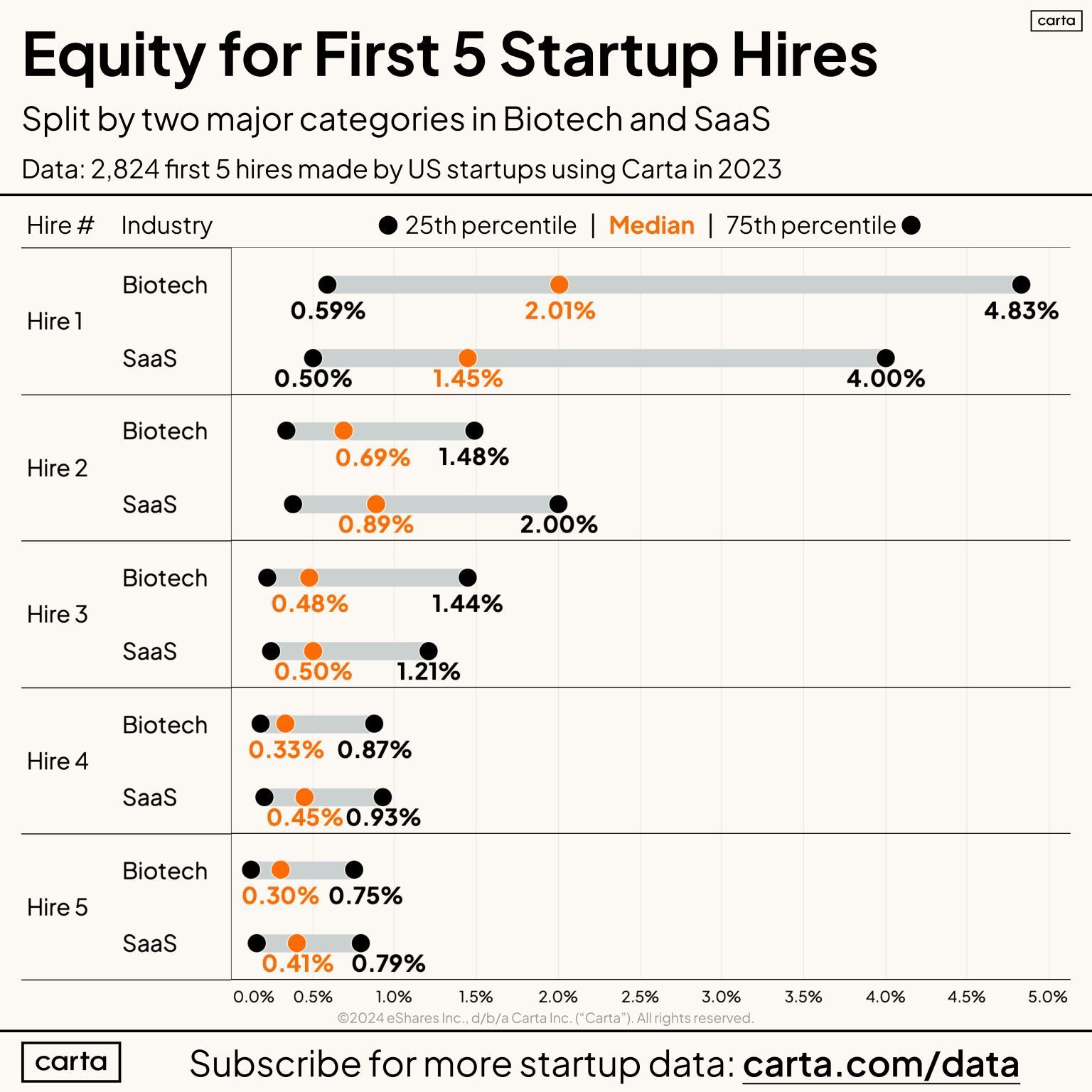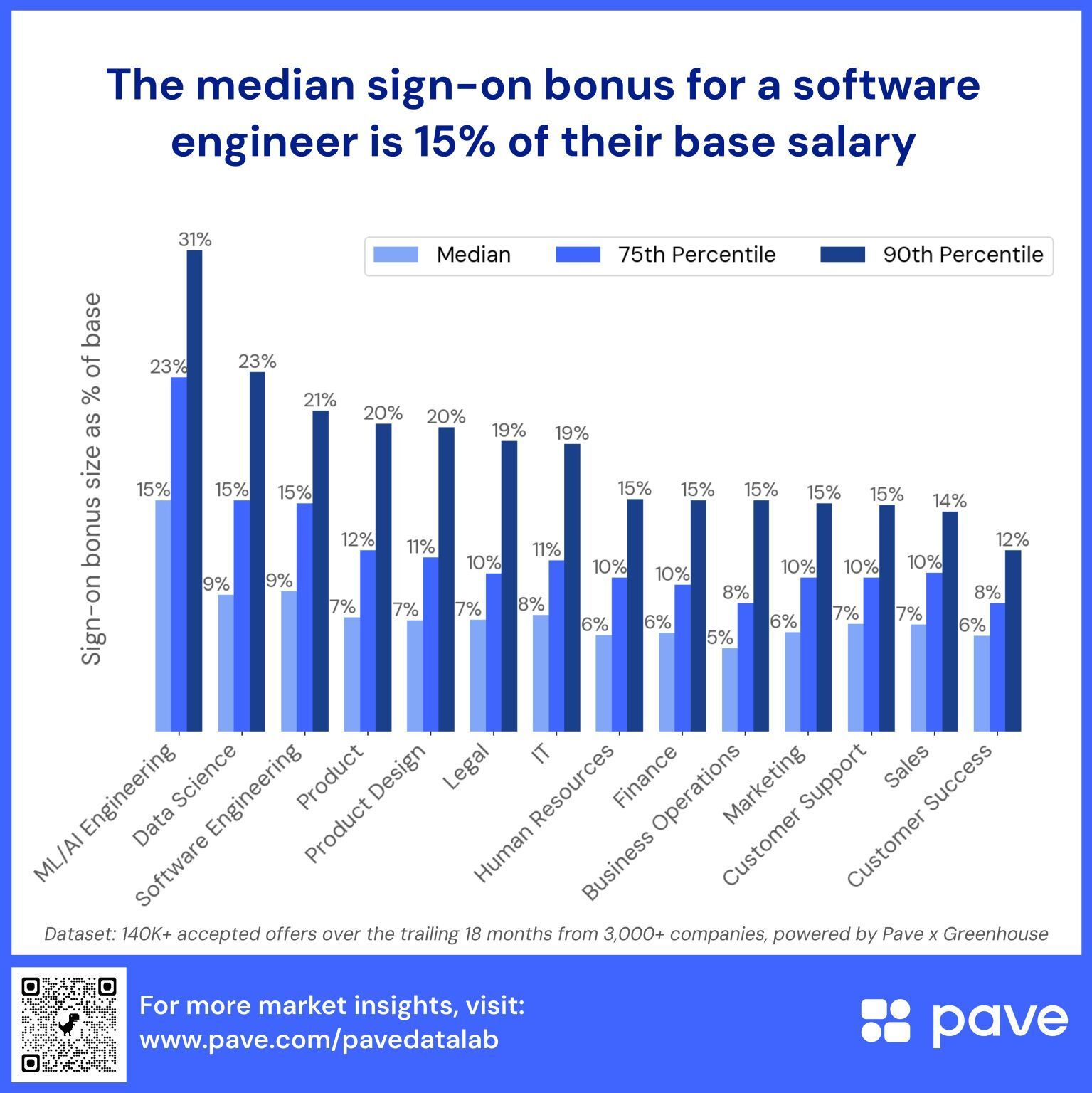👋 Hi, I’m Andre and welcome to my newsletter Data-Driven VC which is all about becoming a better investor with Data & AI. Join 30,045 thought leaders from VCs like a16z, Accel, Index, Sequoia, and more to understand how startup investing becomes more data-driven, why it matters, and what it means for you.
Brought to you by Harmonic - The Startup Discovery Engine

We’ve just launched Semantic Search in beta! Empowering VCs to define a category in their own words and uncover every relevant startup in that space.
What’s a problem worth solving, a product that should exist, or a business model built to win? Just describe what you’re looking for, and Semantic Search will handle the rest.
Test it yourself and learn more about how Harmonic helps firms like BCV, Insight, Pear and Menlo find their next fund returner.
Who to Hire First and How Much Equity They Get
Carta’s Peter Walker analyzes the question every founder wrestles with: Who should your first hires be and how much equity should they get? Based on an analysis of successful startups, the answer often depends on balancing early technical needs with operational execution.
Equity Considerations: Founding hires typically receive meaningful equity stakes—often between 0.5% and 5%—depending on their role and the startup’s stage. Founders should strike a balance between incentivizing key talent and preserving long-term ownership.
Engineer First: In tech startups, hiring a founding engineer or technical lead is often the most crucial first step to build the product or platform efficiently and iterate quickly.
Avoid Early Overhiring: Caution against loading up on senior titles too soon, which can create an inflexible org structure. Early hires should be hands-on builders comfortable with the startup’s chaotic early stage.

✈️ KEY TAKEAWAYS
Founders should focus on hiring versatile, execution-oriented individuals in engineering and operations early on, while offering equity packages that appropriately align incentives and attract top talent.
How Big Are Sign-On Bonuses by Job?
Sign-on bonuses are common perks for luring top talent, but their size varies significantly across job roles. According to an analysis by Matt Schulmann For software engineers, the median sign-on bonus is 15% of base salary, while other functions hover below 10%. AI/ML roles stand out as highly competitive, with bonuses soaring at the higher percentiles.
AI/ML Engineers lead: With a median bonus of 15%, these roles are in high demand. At the 90th percentile, bonuses jump to 31%, translating to $62K on a $200K salary.
Software Engineers and Data Scientists: Both report a median bonus of 9%, indicating strong but less extreme competition than in AI/ML.
Business Operations lag: Roles like business ops and HR see lower medians of around 5–6%, reflecting less bonus-driven recruitment strategies.

✈️ KEY TAKEAWAYS
While AI/ML engineering is redefining the high end of bonus competitiveness, most other roles fall within a 5–9% range, signaling varied employer priorities in attracting talent.
Subscribe to DDVC to read the rest.
Join the Data Driven VC community to get access to this post and other subscriber-only content.
Join the Community
